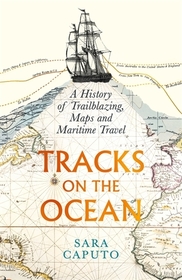
Four Points of the Compass
The Unexpected History of Direction
- Publisher's listprice GBP 10.99
-
5 250 Ft (5 000 Ft + 5% VAT)
The price is estimated because at the time of ordering we do not know what conversion rates will apply to HUF / product currency when the book arrives. In case HUF is weaker, the price increases slightly, in case HUF is stronger, the price goes lower slightly.
- Discount 15% (cc. 788 Ft off)
- Discounted price 4 463 Ft (4 250 Ft + 5% VAT)
Subcribe now and take benefit of a favourable price.
Subscribe
5 250 Ft

Availability
Estimated delivery time: Expected time of arrival: end of January 2026.
Not in stock at Prospero.
Why don't you give exact delivery time?
Delivery time is estimated on our previous experiences. We give estimations only, because we order from outside Hungary, and the delivery time mainly depends on how quickly the publisher supplies the book. Faster or slower deliveries both happen, but we do our best to supply as quickly as possible.
Product details:
- Publisher Penguin Books Ltd
- Date of Publication 4 September 2025
- Number of Volumes B-format paperback
- ISBN 9780141999562
- Binding Paperback
- No. of pages208 pages
- Size 197x129x13 mm
- Weight 184 g
- Language English 684
Categories
Long description:
A sparkling exploration of direction, by the acclaimed author of A History of the World in 12 Maps
North, south, east and west: almost all societies use the four cardinal directions to orientate themselves, to understand who they are by projecting where they are. For millennia, these four directions have been foundational to our travel, navigation and exploration and are central to the imaginative, moral and political geography of virtually every culture in the world. Yet they are far more subjective and various – sometimes contradictory – than we might realize.
The Four Points of the Compass takes the reader on a journey of directional discovery. Jerry Brotton reveals why Hebrew culture privileges east; why Renaissance Europeans began drawing north at the top of their maps; why the early Islam revered the south; why the Aztecs used five colour-coded cardinal directions; and why no societies, primitive or modern, have ever orientated themselves westwards. He ends by reflecting on our digital age in which we, the little blue dot on the screen, have become the most important compass point. Throughout, Brotton shows that the directions reflect a human desire to create order and that they only have meaning, literally and metaphorically, depending on where you stand.





